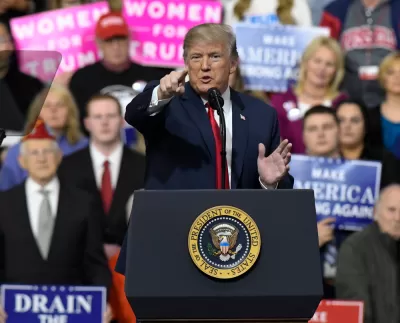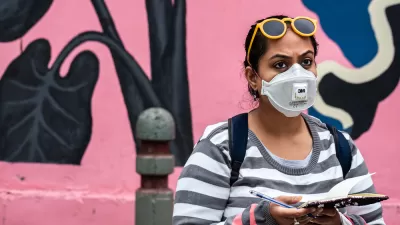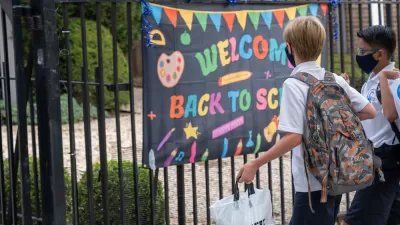When President Trump asserted, "We do too much (coronavirus) testing," he wasn't kidding. He wants to strip $25 billion in funding for testing and tracing needed by states where COVID-19 cases are surging and testing is not meeting demand.

With coronavirus cases increasing in 40 states, staying roughly the same in eight, and decreasing in two, according to The New York Times coronavirus tracker on July 19, we hear from Erica Werner and Jeff Stein of The Washington Post that the Trump administration objects to the inclusion of billions of dollars of funding for two key coronavirus containment strategies, diagnostic testing and contact tracing needed to "flatten the curve," particularly in southern and western states where the virus is surging.
One person involved in the talks said Senate Republicans were seeking to allocate $25 billion for states to conduct testing and contact tracing, but that certain administration officials want to zero out the testing and tracing money entirely. Some White House officials believe they have already approved billions of dollars in assistance for testing and that some of that money remains unspent.
A 16-page plan [pdf] prepared by the Johns Hopkins Center for Health Security and the Association of State and Territorial Health Officials (ASTHO) to contain the coronavirus explains the importance of testing and tracing. The plan remains as relevant today as when it was published on April 10. From the executive summary:
In order to save lives, reduce COVID-19’s burden on our healthcare system, ease strict social distancing measures, and confidently make progress toward returning to work and school, the United States must implement a robust and comprehensive system to identify all COVID-19 cases and trace all close contacts of each identified case.
However, the idea of a national plan to tackle testing and tracing appears anathema to the Trump administration.
Trump and other White House officials have been pushing for states to own more of the responsibility for testing and have objected to creating national standards, at times seeking to minimize the federal government’s role.
President Trump has repeatedly questioned the value of conducting widespread coronavirus testing, arguing that if there were fewer tests conducted, the number of infections would be lower
Will Senate Republicans break from Trump?
-
States to Train Public Health Armies to Move Beyond Mitigation to Containment [see CARES Act funding], April 27, 2020
-
Concern About the Direction of the Next Federal Stimulus Bill, April 15, 2020
-
More Details for Planners on the Federal Stimulus Package, March 29, 2020

Maui's Vacation Rental Debate Turns Ugly
Verbal attacks, misinformation campaigns and fistfights plague a high-stakes debate to convert thousands of vacation rentals into long-term housing.

Planetizen Federal Action Tracker
A weekly monitor of how Trump’s orders and actions are impacting planners and planning in America.

San Francisco Suspends Traffic Calming Amidst Record Deaths
Citing “a challenging fiscal landscape,” the city will cease the program on the heels of 42 traffic deaths, including 24 pedestrians.

Defunct Pittsburgh Power Plant to Become Residential Tower
A decommissioned steam heat plant will be redeveloped into almost 100 affordable housing units.

Trump Prompts Restructuring of Transportation Research Board in “Unprecedented Overreach”
The TRB has eliminated more than half of its committees including those focused on climate, equity, and cities.

Amtrak Rolls Out New Orleans to Alabama “Mardi Gras” Train
The new service will operate morning and evening departures between Mobile and New Orleans.
Urban Design for Planners 1: Software Tools
This six-course series explores essential urban design concepts using open source software and equips planners with the tools they need to participate fully in the urban design process.
Planning for Universal Design
Learn the tools for implementing Universal Design in planning regulations.
Heyer Gruel & Associates PA
JM Goldson LLC
Custer County Colorado
City of Camden Redevelopment Agency
City of Astoria
Transportation Research & Education Center (TREC) at Portland State University
Jefferson Parish Government
Camden Redevelopment Agency
City of Claremont





























